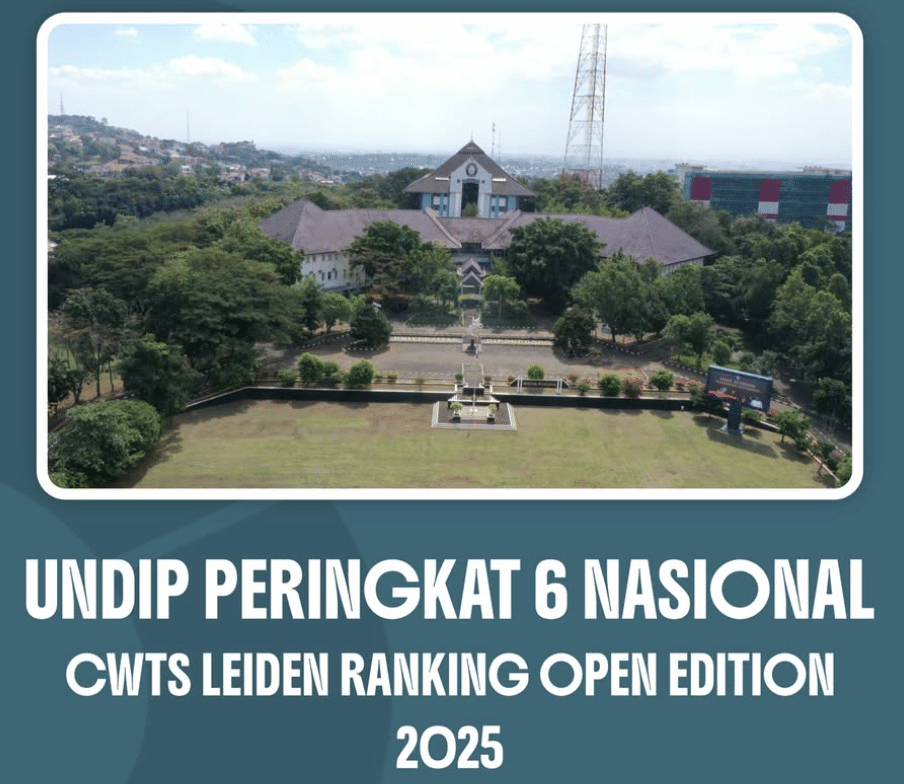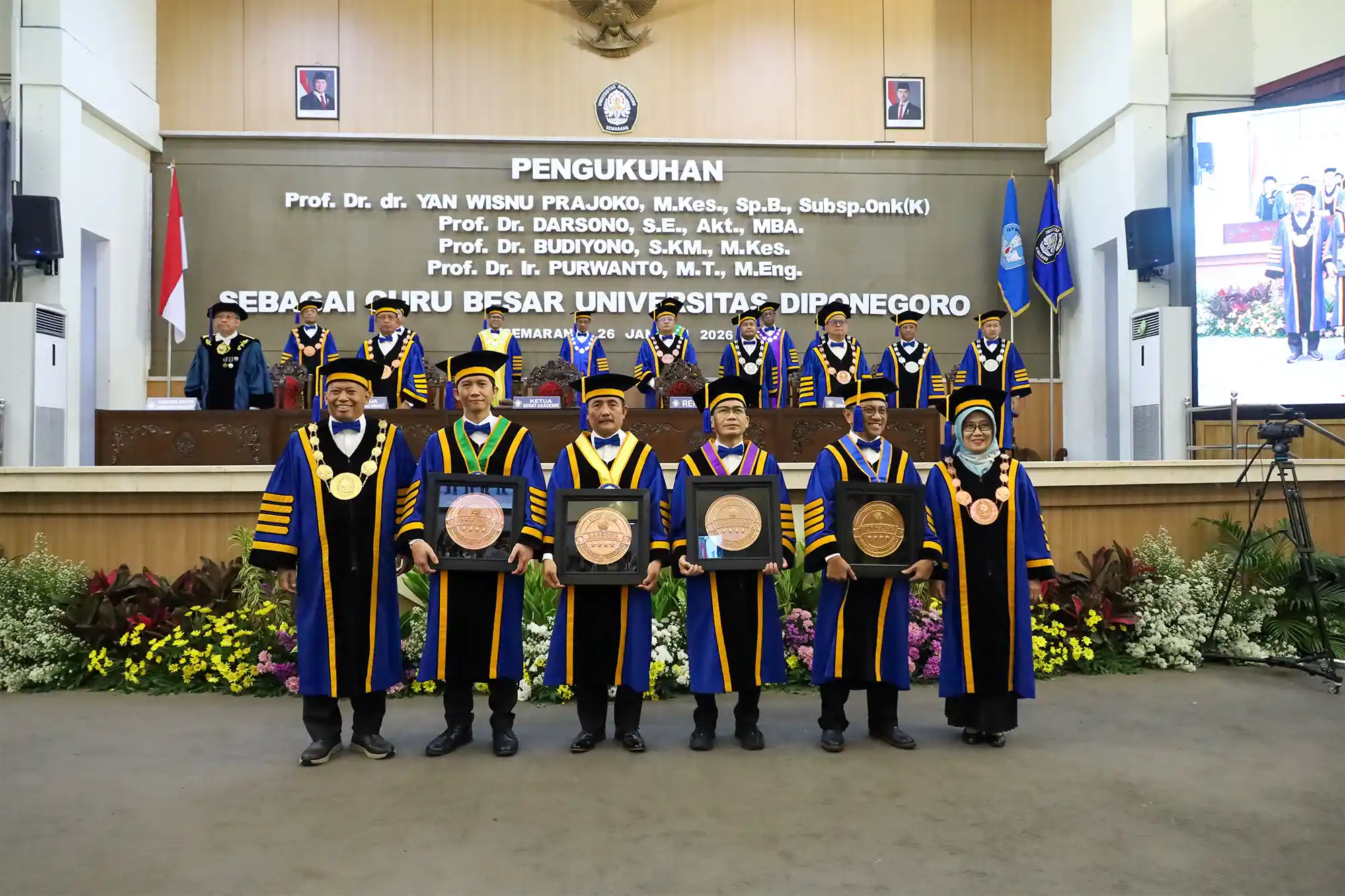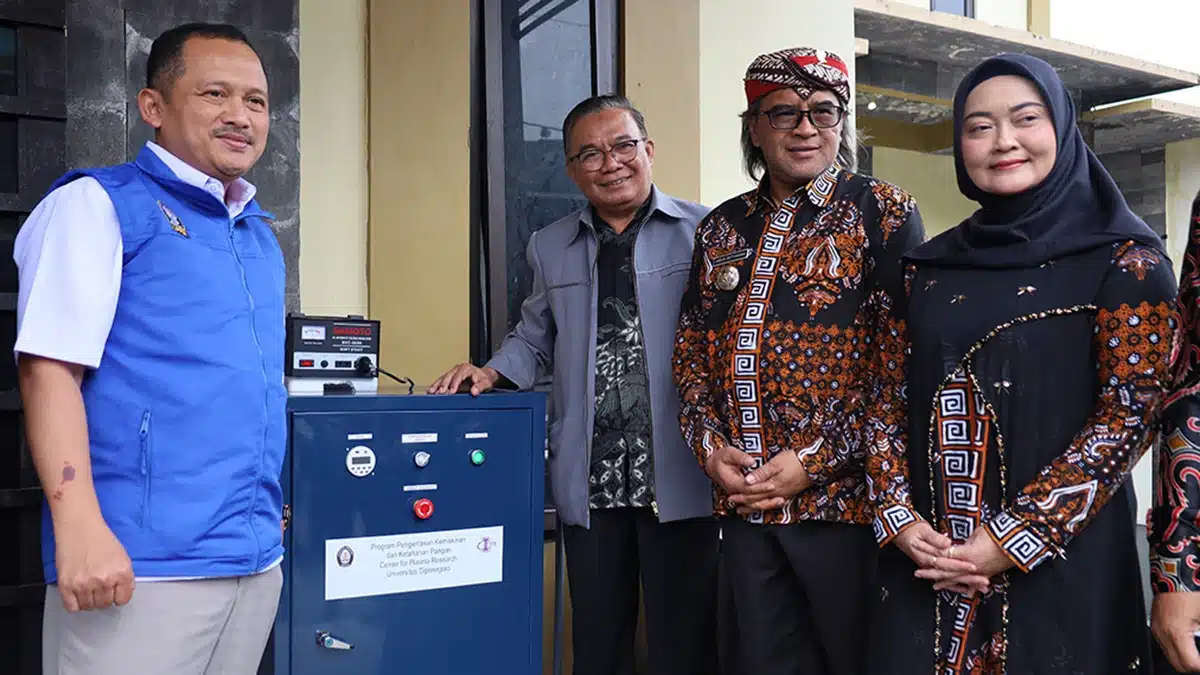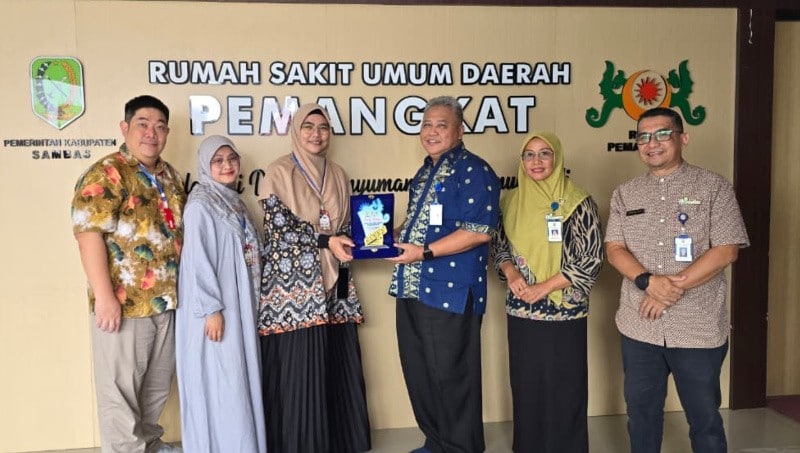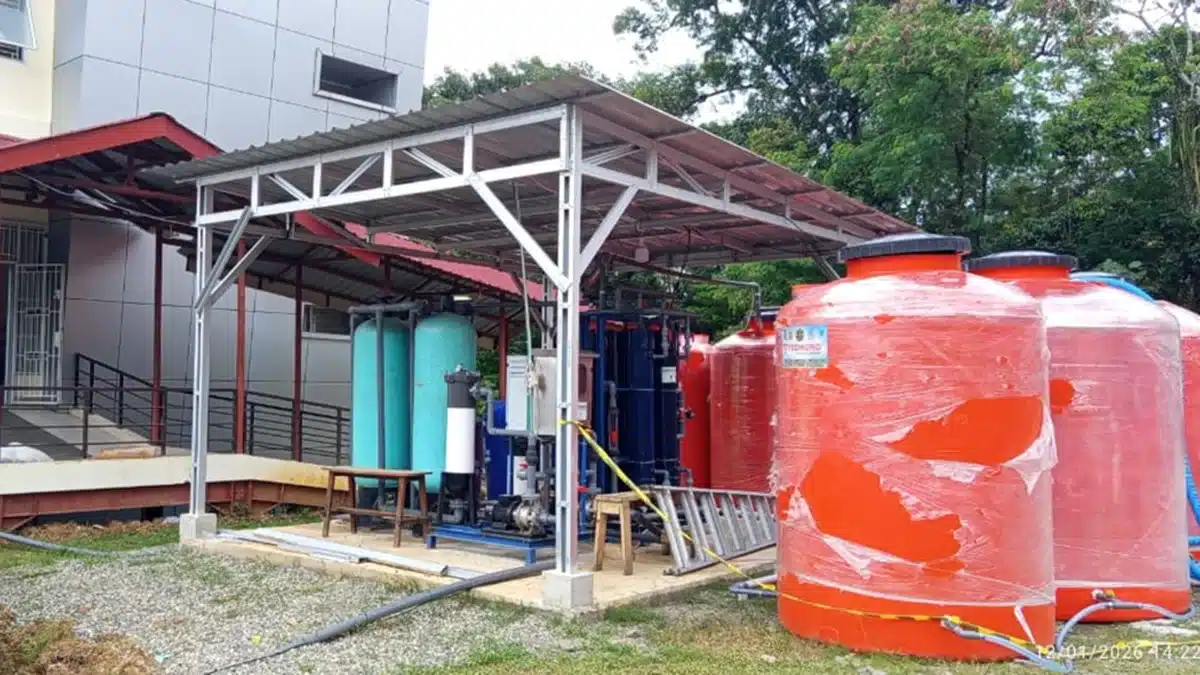SEMARANG – Faculty of Economics and Business (FEB) of Diponegoro University (UNDIP) held a Summer Course Program with the theme of “European and Asian Business Model: Challenges, Barriers, and Opportunities” on Monday (5/7/2021). The 2021 Summer Course with the theme of opportunities, challenges and obstacles from European and Asian business models is very attractive to students, so that no less than 600 students, of which 113 students come from universities abroad, join this program.
In addition to the interesting themes, the speakers involved are experts with outstanding reputations. They are Prof. Dr.Ing. Jan Veuger and Prof. Timber Haaker, from Saxion University of Applied Sciences, The Netherlands; Dr. Yifan Zhong, from Curtin University, Australia; Prof. Dr. Ali Smida from Sorbonne University, Paris Cite, France; Prof. Ying Chyi Chou from Tunghai University, Taiwan.
Other presenters who participated in Summer Course of Faculty of Economics and Business Undip are Dr. Pok Wei Fong and Dr. Omar Hamdan Alkharabsheh from Tunku Abdul Rahman University, Malaysia; Prof. Shimada Yuzuru from Nagoya University Japan; Dr. Chung-Ming Chang from Chang Gung University Taiwan; Azilah Anis, Ph.D from Universiti Teknologi MARA Malaysia; Dwi Winarsih, Ph.D from the Universite de La Rochelle France; and Prof. Dr. Che Ruhana Bint Isa and Assoc. Prof. Dr. Ervina Binti Alfan from the University of Malaya Malaysia. IDHEP (Institut de Développement et des Hautes tudes de Paris) experts and researchers from Paris France also participated through four of its flagship personnel, namely Dr. Kaouther Ben Jemaa; Prof. Dr. Faouzi Bensebaa,; Prof. Dr. Michel Dimou; and Dr. Elhem Hammami.
The Dean of Faculty of Economics and Business Undip, Prof. Dr. Suharnomo, S.E., M.Sc. are proud of the implementation of this Summer Course even though it had to be done online. Suharnomo said that from the number of participants and the number of experts involved, this event is something extraordinary. “It is an honor for me to welcome all of you to the Summer Course program 2021. This event is our annual program which will be held for approximately 3 weeks from July 5th – July 23rd 2021. We are very pleased with the participation of prominent speakers from our partner universities abroad,” said Suharnomo.
Furthermore, the Dean of FEB was grateful for holding this event. “I am very grateful that in this pandemic situation, we can still hold Summer Course events even though it is held online. Hopefully this pandemic situation will not affect our enthusiasm to continue learning, and encourage us to look ahead in preparing a better future. This is our second event after successfully holding a Summer Course in the previous year, and we are proud to inform you that we have more than 600 participants consisting of foreign students as well as Indonesian students,” he explained.
To be sure, he hoped that this discussion can provide maximum benefits to all parties involved. At least it is important to understand what are the barriers, opportunities and challenges of the current European and Asian business models. “Hopefully we all get new and valuable knowledge through this three-week lecture program,” he hoped.
Dr. Pok Wei Fong from Tunku Abdul Rahman University, Malaysia as the first speaker on this occasion discussed about e-commerce business models and strategies for success. According to Wei Fong, in the digital era as it is today, e-commerce business is an interesting thing. People are starting to feel comfortable using e-commerce to do shopping online so people no longer have to go shopping.
However, what needs to be considered from the e-commerce business is related to websites, technology in the field of information technology (IT), sales or market, information and communication which requires managers to be able to master social media. According to him, the role of social media is very important, because it is able to attract consumers in this case.
According to him, the e-commerce business, although comprehensive, the key is how marketing attracts consumers through social media. Wei Fong reminded that the mechanism and work pattern of the product to reach consumers must be considered and controlled properly so that it can be sustainable.
The process starts from making order by consumers through online stores, then the shops that are members of the startup automatically send orders to suppliers, then from suppliers the goods are sent to consumers with a controlled and safe delivery pattern. For education, there are currently a number of tutorials that teach how an e-commerce business is organized.
The current e-commerce business, he said, has formed a network with a number of countries, especially related to the sale of its products. This involves a number of companies to participate in these activities to the fullest considering the value of e-commerce transactions is already very large and interrelated from upstream to downstream.
He gave an example of how the digital economy in Malaysia has boomed in the last five years. Revenue from this sector also contributes a large nominal figure, so there needs to be maximum protection for consumers and business actors. Based on Malaysia business to consumer (B2C) data, the Lazada platform won 78.4% in its sector, Shopee 77.3%, mudah.my 63.6%, Lelong.my (53.4%), GoSHOP (38.6%) ), ezbuy (23.3%) and PrestoMall 9.1%. (PR team)
Translated by: Titis (Public Relations)


